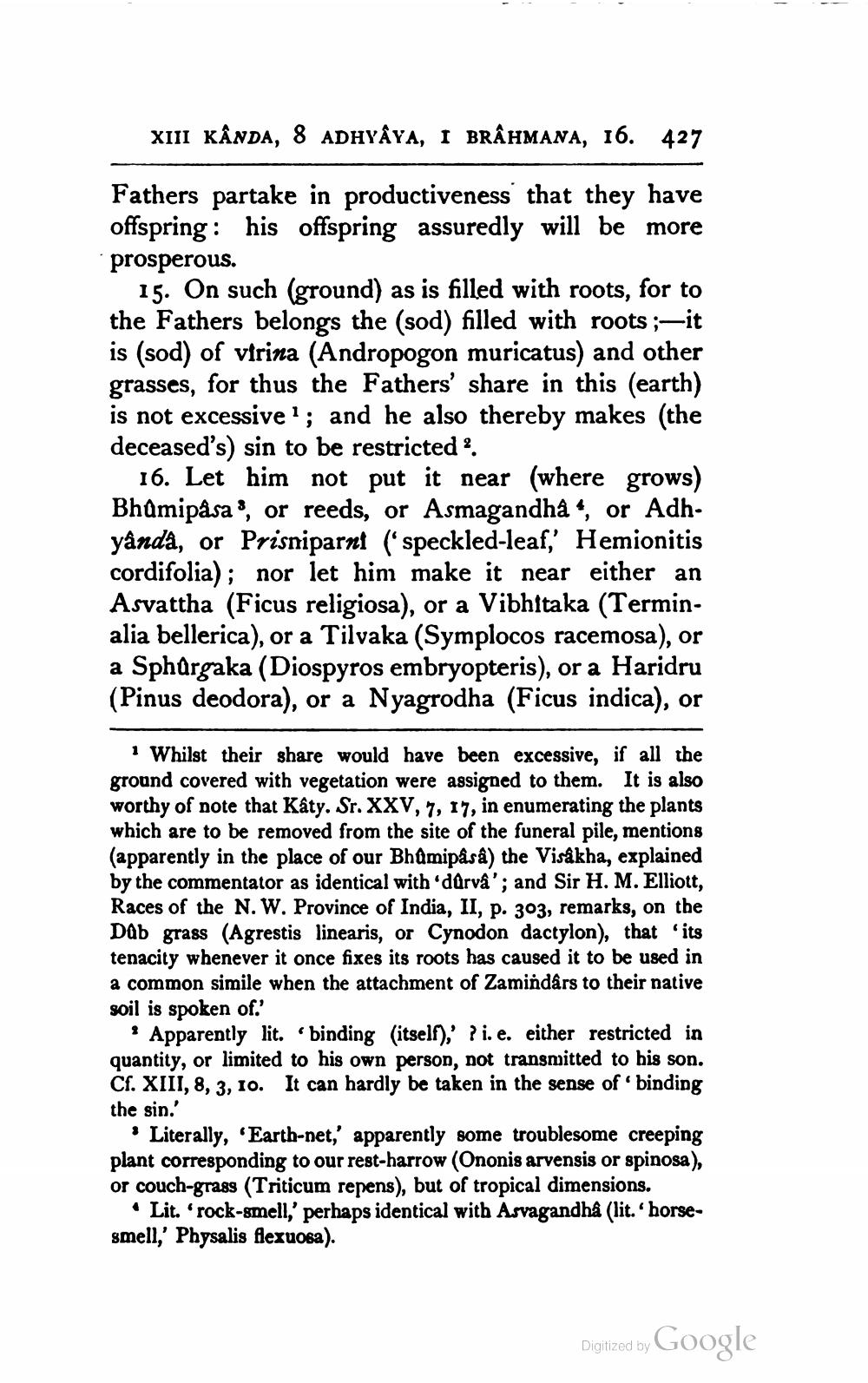________________
XIII KÂNDA, 8 ADHYÂYA, I BRÂHMANA, 16. 427
Fathers partake in productiveness that they have offspring: his offspring assuredly will be more prosperous.
15. On such (ground) as is filled with roots, for to the Fathers belongs the (sod) filled with roots ;-it is (sod) of virina (Andropogon muricatus) and other grasses, for thus the Fathers' share in this earth) is not excessive !; and he also thereby makes (the deceased's) sin to be restricted ?
16. Let him not put it near (where grows) BhQmipåsa?, or reeds, or Asmagandha“, or Adhyanda, or Prisniparni (speckled-leaf,' Hemionitis cordifolia); nor let him make it near either an Asvattha (Ficus religiosa), or a Vibhitaka (Terminalia bellerica), or a Tilvaka (Symplocos racemosa), or a Sphargaka (Diospyros embryopteris), or a Haridru (Pinus deodora), or a Nyagrodha (Ficus indica), or
1 Whilst their share would have been excessive, if all the ground covered with vegetation were assigned to them. It is also worthy of note that Kâty. Sr. XXV, 7, 17, in enumerating the plants which are to be removed from the site of the funeral pile, mentions (apparently in the place of our Bhâmipåsa) the Visakha, explained by the commentator as identical with 'dürva'; and Sir H. M. Elliott, Races of the N. W. Province of India, II, p. 303, remarks, on the Dab grass (Agrestis linearis, or Cynodon dactylon), that its tenacity whenever it once fixes its roots has caused it to be used in a common simile when the attachment of Zamindårs to their native soil is spoken of
? Apparently lit. binding (itself),' ? i.e. either restricted in quantity, or limited to his own person, not transmitted to his son. Cf. XIII, 8, 3, 10. It can hardly be taken in the sense of binding the sin.'
Literally, 'Earth-net,' apparently some troublesome creeping plant corresponding to our rest-harrow (Ononis arvensis or spinosa), or couch-grass (Triticum repens), but of tropical dimensions.
• Lit. .rock-smell,' perhaps identical with Asvagandhå (lit.' horsesmell,' Physalis flexuosa).
Digitized by Google




